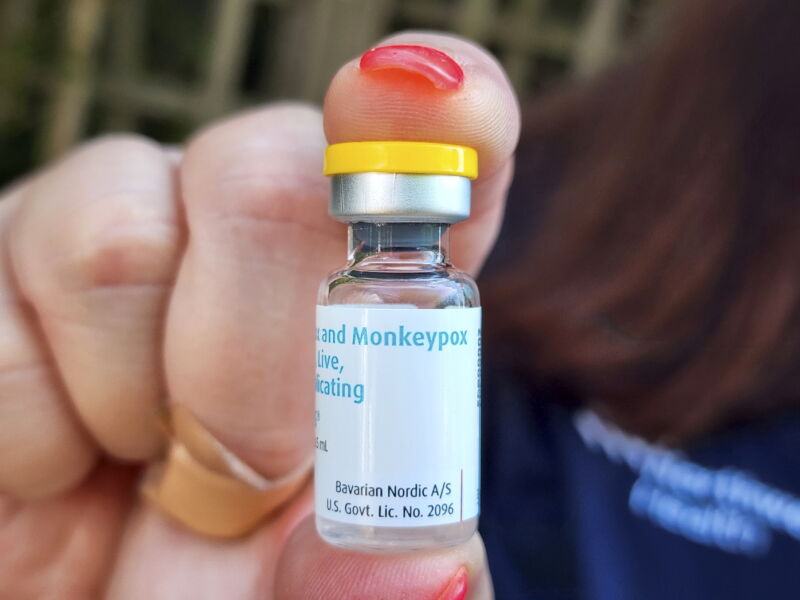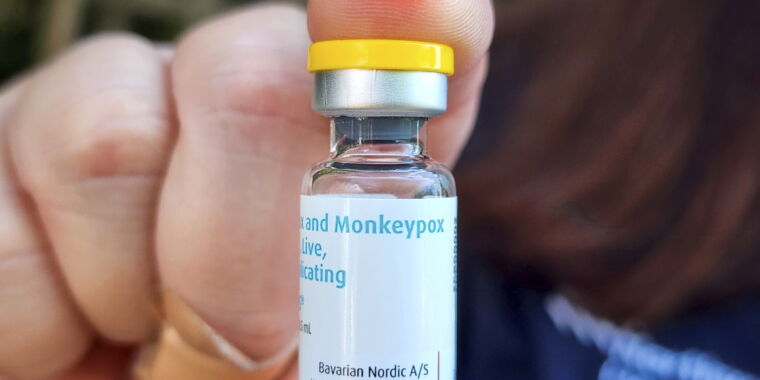
Monkeypox cases in the US reached 1,470 this week, and federal officials reported Friday that they expect the number to continue to rise amid extensive testing, continued community transmission and a current shortage of vaccines. The federal update comes as officials face mounting criticism over their handling of the outbreak, and experts fear it may already be too late to contain the virus.
Overall, the multinational monkeypox outbreak has counted nearly 13,000 cases, with the largest counts in Spain (2,835), Germany (1,859) and the UK (1,856). The US is now in fourth place worldwide. But it could potentially rise in the ranks soon.
“We expect an increase in the number of cases in the coming weeks,” Rochelle Walensky, director of the U.S. Centers for Disease Control and Prevention, said in a news conference on Friday. Walensky has outlined three reasons why they expect an imminent rise.
First, the agency recently streamlined the reporting process for states, which first began reporting cases in May. Second, because there is often a three-week incubation period between exposures and symptoms, officials expect to see transmission event cases early in the U.S. outbreak. Finally, the CDC has recently expanded testing capacity to include some widely used commercial labs, such as Labcorp and Quest Diagnostics. The expansion increased the capacity of running up to about 6,000 tests per week to 70,000. It also makes it easier for clinicians to order tests and is likely to speed up the turnaround time for results.
Testing was previously limited to a small network of CDC labs and there were many reports of delayed results, with patients having to wait five to seven days.
snags in response
But while the country’s ability to identify cases may improve, treating cases and preventing new ones is still a struggle. The Washington Post reported Friday that doctors must complete hours of paperwork to access smallpox antivirals from the Strategic National Stockpile — and that paperwork must be completed for each patient. “It was a very daunting task,” Roy Gulick, chief of the Infectious Diseases Division at New York Presbyterian/Weill Cornell Medical Center, told the Post.
Meanwhile, the US is short of the Jynneos smallpox/monkeypox vaccine used for pre- and post-exposure prophylaxis. The CDC recommends the vaccine for people with known or suspected exposure to monkeypox. But many places — New York City in particular — have been overwhelmed with demand and quickly run out of doses.
“I want to recognize that right now the demand for vaccines from jurisdictions is greater than our current available supply,” Walensky said. “And we know this is frustrating.”
Today, the Department of Health and Human Services announced it is making 131,000 additional doses available for states to order, which could arrive in jurisdictions early next week. The new vaccine batch comes on top of the 156,000 doses already distributed.
With plodding progress in responding to the outbreak, many experts are concerned that the virus could be located in the US. For now, US officials say the vast majority of cases still occur among people who identify as men who have sex with men. But health experts warn that as the outbreak grows, it becomes more likely that the virus will spread to groups most vulnerable to serious illness, namely pregnant people and children. So far in the US, at least eight people identified as female at birth have been infected. However, the CDC only has demographic data on about 700 of the country’s 1,470 cases.

